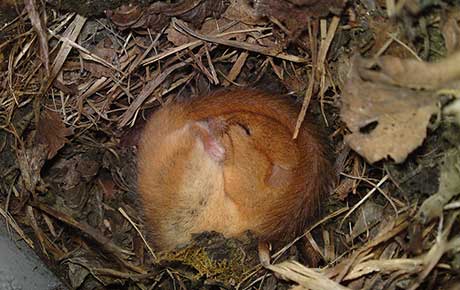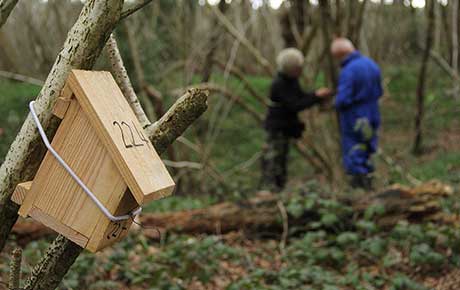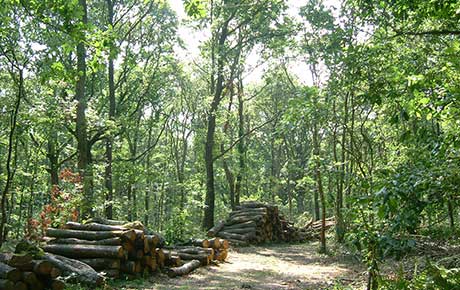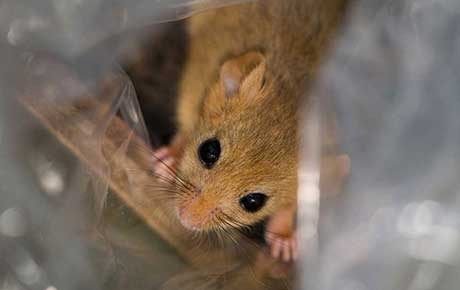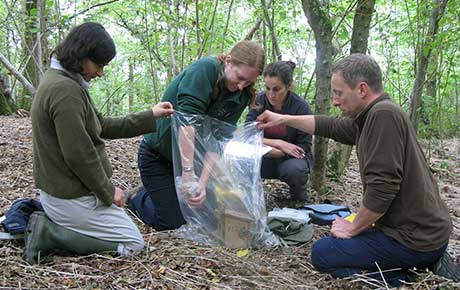Protection for hazel dormice
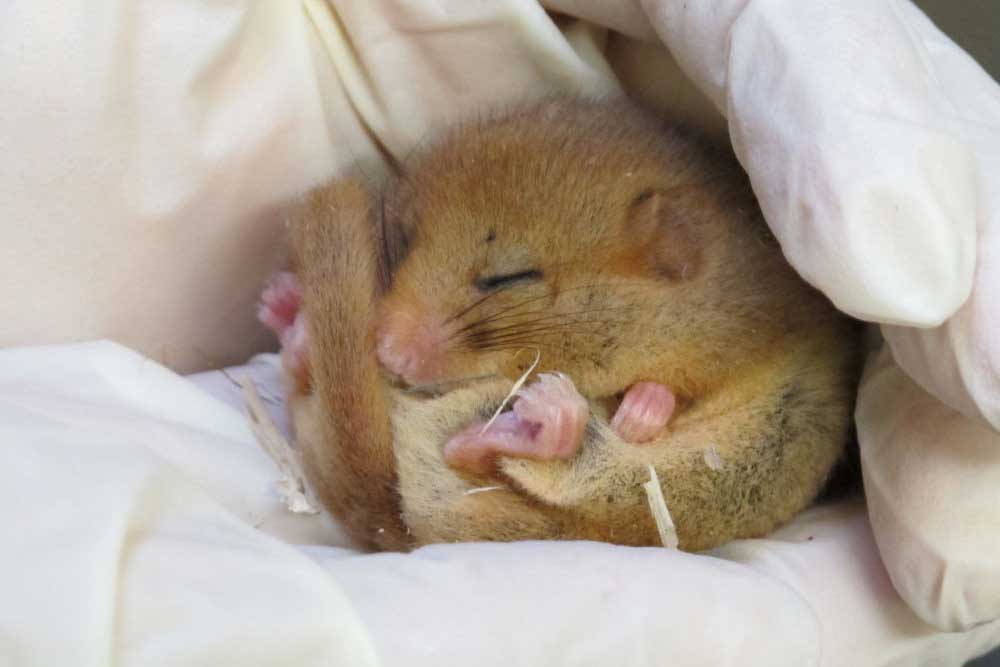
Hazel dormice are native and localised in the UK, rare and vulnerable to extinction and protection for hazel dormice is vital. They are a conservation priority species in the UK and a European Protected Species. A special licence from Natural England (NE) and Natural Resources Wales (NRW) is required to disturb them.
Licensing
Hazel dormice are protected under national and international legislation, the most recent of which is the Conservation (Natural Habitats &c.) Regulations 1994 implement EC Directive 92/43/EEC, known as The Habitats Directive. It’s an offence to deliberately to kill, capture, or disturb a hazel dormouse. It’s also illegal to damage or destroy its breeding site or resting place (for more information on legislation visit www.naturenet.net)
Where there’s a reasonable likelihood of dormice, checking a dormouse box or nest tube potentially disturbs and is illegal without a licence. So, if you are checking boxes either for scientific research (generally the national monitoring) or for planning purposes, you require a disturbance licence from NE or NRW.
If a development may effect a dormouse population or dispersal route, a mitigation licence is likely to be required. The licence is usually written and submitted by an ecological consultant with the aim of protecting the dormouse population whilst the work is underway and ensuring, in the longer term, that there is no nett loss of dormouse habitat.
Dormouse courses and training
A dormouse disturbance licence requires a reference from two people who’ve held a licence for at least three years. This is to confirm that you have the knowledge and skills to deal with hazel dormice. As this will require seeing dormice in all life stages, this can take up to three years.
You can also learn more in our online training area.

